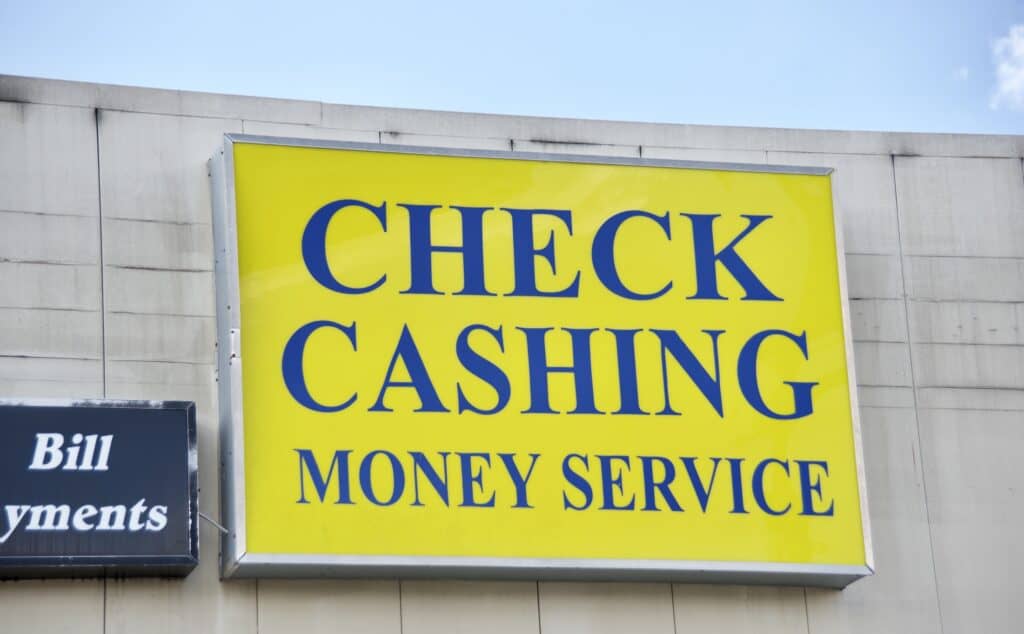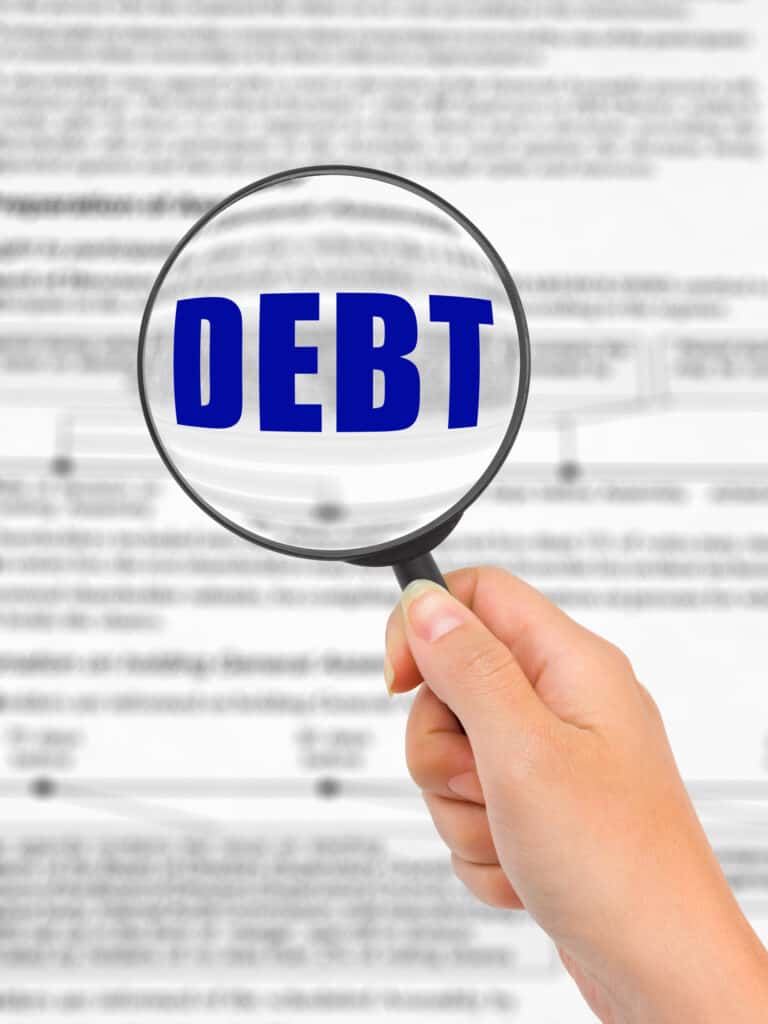Have you ever had to cash a check and been asked for your social security number? You may have been confused why a check cashing place needed such sensitive information. After all, it seems like overkill to ask for your social security number just to cash a check. Let’s take a look at why they need that information and how it helps them keep their business safe.
Want to see your credit score for free and be able to use many financial tools right now? Just click here!

The Reason Behind the Request
When you go to cash a check, you may be asked for your Social Security number. This can be surprising and confusing, especially if it’s the first time you’ve heard of this request. So what’s the reason behind it? Let’s take a look at why businesses ask for this information and how it affects you.
The Purpose of the Request
When business owners ask customers for their Social Security numbers, there are two primary reasons why they do so: To ensure that funds are being transferred to the right person, and to protect themselves from legal liabilities down the line.
The security of your money is important, so businesses need to make sure that whoever is cashing a check is actually who they say they are. A Social Security number helps them verify that information and make sure funds aren’t being transferred fraudulently. In some cases, businesses might also require an ID along with your Social Security number for added security.
At the same time, companies need to protect themselves from potential legal action in the future—such as if someone tries to file a lawsuit against them claiming that the business didn’t pay out correctly. By asking for your Social Security number when cashing checks, businesses can keep records of all transactions made with each customer in case any legal issues arise later on.
Your Safety Matters Too
It can feel disconcerting when businesses ask for your Social Security number since that kind of information is sensitive and should be kept private under normal circumstances. That said, there are ways you can remain safe when cashing checks and still provide your Social Security number if requested. First off, always check out any business or institution before agreeing to provide personal information like this—look up reviews online or call friends who have used them before. This will help give you peace of mind about working with them in the future.
Additionally, make sure any business handling financial matters has secure systems in place (like encryption) so that all data stays safe from malicious actors online. And lastly, remember never to share sensitive information like passwords or credit card numbers along with your Social Security number—that way it stays secure no matter where it goes after you provide it!
Click Here to Check Your Credit Score for Free!
For Identity Verification Purposes
Ever been in a situation where you were about to cash a check and suddenly you’re asked for your social security number (SSN)? It can be an unsettling experience for many, especially when considering the potential risks of identity theft. Understanding the reasons behind this practice is crucial to help you better navigate these scenarios and feel more at ease. This blog aims to shed light on the purpose of social security numbers in the context of identity verification and will provide tips on safeguarding your personal information.
The first and most important aspect to understand is the role of the social security number. Established in 1936 as part of the Social Security program, SSNs serve as unique identifiers for individuals within the United States. As their primary purpose is to track an individual’s earnings and benefits, they have now evolved into a widely used means of identification.
Financial institutions, such as banks and credit unions, frequently use SSNs as a means to verify a person’s identity when cashing checks or opening accounts. It allows them to cross-check the information you have provided against a national database to confirm that you are who you claim to be. This added layer of security helps prevent fraud, money laundering, and other types of financial crimes.
Although well-intentioned, the widespread use of SSNs for identity verification purposes has given rise to privacy concerns. Identity theft and fraud have become increasingly prevalent, making many individuals hesitant to disclose their SSN in the process of financial transactions. While it is true that divulging such sensitive information does pose some risk, there are steps you can take to protect yourself while still complying with financial institutions’ verification requirements.
Firstly, always ensure that you are dealing with a legitimate financial institution before providing your SSN. Look for official logos and branding, and make sure that the bank or credit union has a physical location you can visit. If you are asked to provide your SSN over the phone, verify the caller’s identity through an independent source, such as looking up the institution’s contact information online.
Secondly, adopt a proactive approach in monitoring your credit and financial accounts. Review bank statements and credit reports regularly for any suspicious activity or errors. Taking advantage of free annual credit report services can help you stay on top of your financial history.
Last but not least, make sure to report any lost or stolen identification immediately. This includes notifying the appropriate institutions, such as banks and credit bureaus, to place a temporary fraud alert on your accounts. This will make it more difficult for potential identity thieves to open new accounts in your name.
To Verify That The Person Has No Outstanding Debts

So, you’ve got a check in your hands and you’re ready to cash it, but the teller at the bank has asked for your social security number. It can be a bit unnerving—you know that having outstanding debts can affect your credit score and you want to make sure everything is on the up-and-up. But how do you go about verifying that you don’t have any unpaid debts? Let’s take a look at what options are available for people who want to make sure they are debt-free.
The first thing you should do is check your credit report. You can get this from one of the three major credit bureaus (Equifax, Experian, or TransUnion) or through an online service like Credit Karma or Credit Sesame. Your report will show all active accounts as well as any accounts that were recently closed or paid off. Be sure to keep an eye out for any accounts that are listed as “delinquent” or “past due” as these indicate that there may be an unpaid debt associated with them.
Another option is to contact the creditor directly and ask if there is any outstanding balance on the account in question. This may require some digging due to the fact that creditors often sell delinquent accounts to third-party debt collection agencies, so you may need to contact more than one company in order to get all the information you need. Finally, it may be helpful to conduct a search of public records such as court judgments and liens in order to verify if there are any unpaid debts against your name. This can easily be done online using a variety of websites like MyLife or Legal Database Services.
To Comply With Regulations For Financial Institutions
Have you ever been asked for your social security number when cashing a check or when opening up a bank account? It’s an all too familiar scenario for many people who are looking to do business with financial institutions. So why do they need that information, and when is it okay to give it out? Let’s break down the regulations surrounding social security numbers and financial institutions.
The Need for Social Security Numbers in Financial Transactions
Financial institutions often ask for social security numbers as part of their customer onboarding process. This is done so that they can verify the customer’s identity and ensure that they are not engaging in any illegal activities, such as money laundering or fraud. It also helps financial institutions comply with federal regulations, such as the Patriot Act, which requires banks to obtain certain customer information in order to prevent terrorist financing. Additionally, providing a social security number allows financial institutions to build an accurate credit report which can be used by lenders to assess the customer’s creditworthiness.
Click Here to Buy Stocks and Crypto on eToro!
When You Don’t Need To Provide Your Social Security Number
In certain situations, there is no need for customers to provide their social security numbers when dealing with financial institutions. For example, if you are cashing a check from your employer or from someone you know well, then you should not have to provide your social security number. In addition, if you are making a deposit into an existing bank account then there should be no need for additional verification beyond providing valid ID and other proof of address such as a utility bill in your name. Finally, if you are opening up a new bank account then most banks will allow you to use alternative forms of identification such as a driver’s license or passport instead of providing your social security number.
Conclusion
Ultimately, giving out your social security number when cashing a check is not only common practice but also necessary for many businesses in order to comply with applicable laws and regulations—not least being those pertaining to identity verification and debt avoidance measures in order to protect both parties involved in any transaction taking place within the premises of the business in question. While you should always be careful not to give out personal information such as your SSN unnecessarily or without due cause, providing this information when asked by a legitimate business should generally be considered safe and secure—and could even help you enjoy quicker service!
